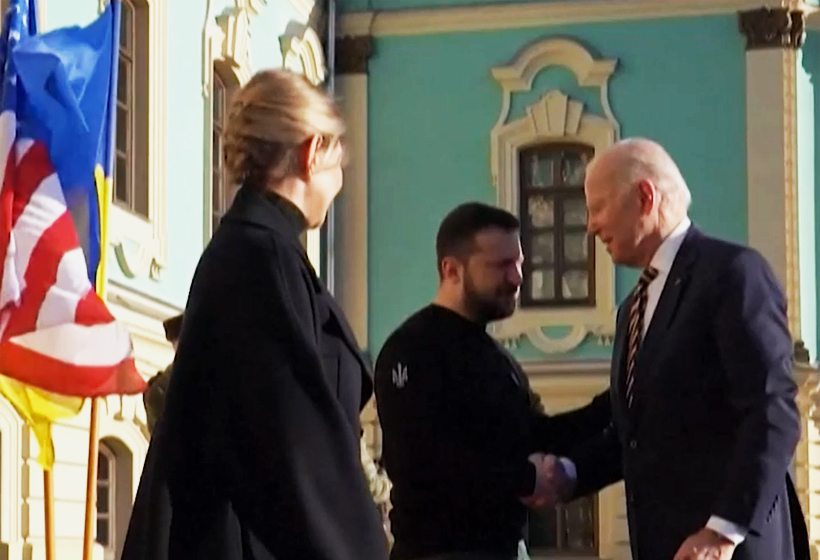With its diplomatic push to end the Ukraine war, China has made an important contribution to a peaceful solution to the bloody conflict between Kiev and Moscow. In doing so, however, the People’s Republic has triggered very different reactions internationally: some states see the Chinese initiative as having definite potential for a negotiated solution, while others see it as Beijing’s intention to advance its interests and improve its image.
By Alexander Männer
Russia, for example, welcomes the twelve-point plan for a peaceful resolution of the conflict, while the United States and Ukraine reject it. The EU has reacted with restraint to the Chinese push. China is said to have already taken sides with the Russians, but there are interesting observations to be made about the initiative, Brussels says.
Overview of Chinese peace demands
In this regard, here is a brief overview of the Chinese proposal for peace negotiations and a ceasefire in Ukraine contained in a three-page document.
First, the Chinese leadership stresses the need to respect the sovereignty and territorial integrity of all countries, pointing out that “double standards” must be rejected and that the equal and uniform application of international law must be applied.
Second, they point out that regional security cannot be guaranteed by strengthening and expanding military blocs. The Cold War mentality must be abandoned and all parties should strive for a sustainable European security architecture, as well as “oppose the pursuit of their own security at the expense of the security of others, prevent bloc confrontation, and work together for peace and stability on the Eurasian continent.”
In the third point and fourth point, Beijing calls on all parties to exercise restraint to prevent further escalation of the conflict and emphasizes (with regard to peace talks) dialogue and negotiations as the only real way out of the Ukrainian crisis. To this end, he said, conditions must be created and a platform provided for the resumption of negotiations between Russia and Ukraine.
In the other points, the Chinese side opposes the use of nuclear weapons and attacks on nuclear power plants or other peaceful nuclear facilities. In addition, civilians are to be protected, safe escape corridors established, and humanitarian aid enabled and supported. With regard to prisoners of war, the relevant fundamental rights should be respected and prisoner exchanges should be carried out.
Perspective and intention of the initiative
The Chinese leadership’s approach to the situation in the Eastern European crisis country is not new. In one way or another, Beijing had already publicly addressed most of its demands regarding Ukraine on several occasions. However, based on the official reactions of the Western states and the Kiev leadership, the peace initiative has little chance of success. Critics accuse Beijing, among other things, of not having provided clear recommendations for implementing the twelve-point plan.
It is possible that the implementation of these basically compiled “principles of a peace solution” is not the primary intention of the Chinese, who in reality want to achieve something else. It is possible that the primary purpose is to show the parallels to the Taiwan conflict and to make it clear to China’s opponents on this issue that Beijing will not deviate from its line in the South Asian region.
The People’s Republic is primarily concerned with strengthening its own interests in the Taiwan issue. The very first point of its plan, respect for the “sovereignty, independence and territorial integrity of all countries,” is obviously aimed indirectly at states that do not consider Taiwan to be part of China. With this demand, however, they want to make it clear to everyone that Taiwan irrevocably belongs to China and that any other position in this regard violates the country’s sovereignty.
The demand for “abandonment of the Cold War mentality” in the second point is also primarily directed at Western countries, first and foremost the United States. Beijing makes clear that no country should pursue its own security at the expense of another. Especially not by strengthening or expanding military alliances. This also indirectly accuses the U.S. of provoking and escalating the situation around Ukraine through plans for the possible expansion of NATO and by taking appropriate steps. In this way, NATO is quasi complicit in the Ukraine war. In this respect, it is logical that NATO criticizes the said proposals as “not credible”.










